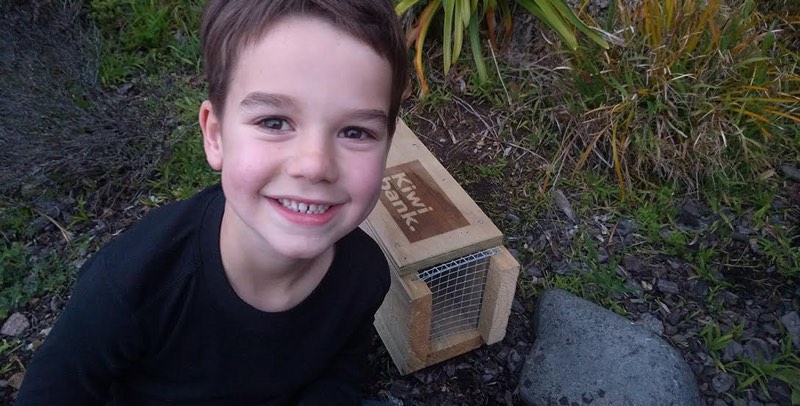Predator Free New Zealand Trust and Kiwibank have announced they have partnered to create Kiwibank Predator Free Communities. It is great to see the model we used with Enhancing the Halo in Wellington being rolled out nationally to encourage more communities to become predator free.
Predator Free New Zealand requires predator free communities
In 2014 Crofton Downs in Wellington managed to make their suburb the first predator free community in the country (if not the world!) after winning a Morgan Foundation competition. They showed by getting a trap in every fifth backyard they were able to make their suburb predator free. Residents also reported a significant increase in the native birds in their backyards, and there are now at least 2 established kaka nests in the neighbourhood. Of course since the rest of Wellington isn’t predator free (yet) there is always the risk of reinvasion, but continued trapping addresses that issue.
This year has been a massive boost for the Predator Free vision. Since Sir Paul Callaghan talked me into joining the cause back in 2012 it has taken a bit of work to convince people that it is doable. But this year all that hard work looks to have paid off.
First we had the Million Dollar Mouse project back in May – eradicating mice on the Antipodes Island. This will make yet another subantarctic island a safe haven for our native species.
Then we saw the Government get in behind our vision, announcing an ambitious target to make NZ Predator Free by 2050. They have invested $28m and are looking to leverage double that from local government, communities and philanthropists.
The technology is a challenge, which is why I have invested in Zero Invasive Predators to develop that technology further. And with good local companies like Goodnature on the case with their self-resetting traps, I’m confident the technology is on the way.
The hard part of achieving this vision is going to be mobilising the public. If we are going to achieve this goal it is going to take us all doing our bit. Where predator control has typically been the preserve of sandal wearing greenies in the past, it is now becoming apparent that we can all do our bit in our backyard, our communities and nearby parks.
Wellington’s success with native species overflowing from Zealandia has meant people are keen to ensure these species are also safe outside the fence. There are many areas around the country where urban predator control is allowing native species to flourish, for example Otago Penninsula, Ark in the Park in Auckland, Hamilton Halo, Otatara and recently announced the drive for a predator free Picton.
What’s the deal?
Kiwibank and Predator Free NZ will support communities across the country wishing to take up the predator free challenge. Predator Free Communities will receive funding for subsidised equipment, technical support and access to expertise on how to make their community predator free.
Like Crofton Downs, the goal is to get 1 in 5 Kiwis trapping in their back yards, so that our towns and cities can be effectively predator free.
Have a chat with some of your neighbours and mates about making your community predator free. If there is a bit of interest, and you want to put up your hand to make your community predator free, visit the Predator Free New Zealand site to register your interest.
More information about Kiwibank Predator Free communities.

